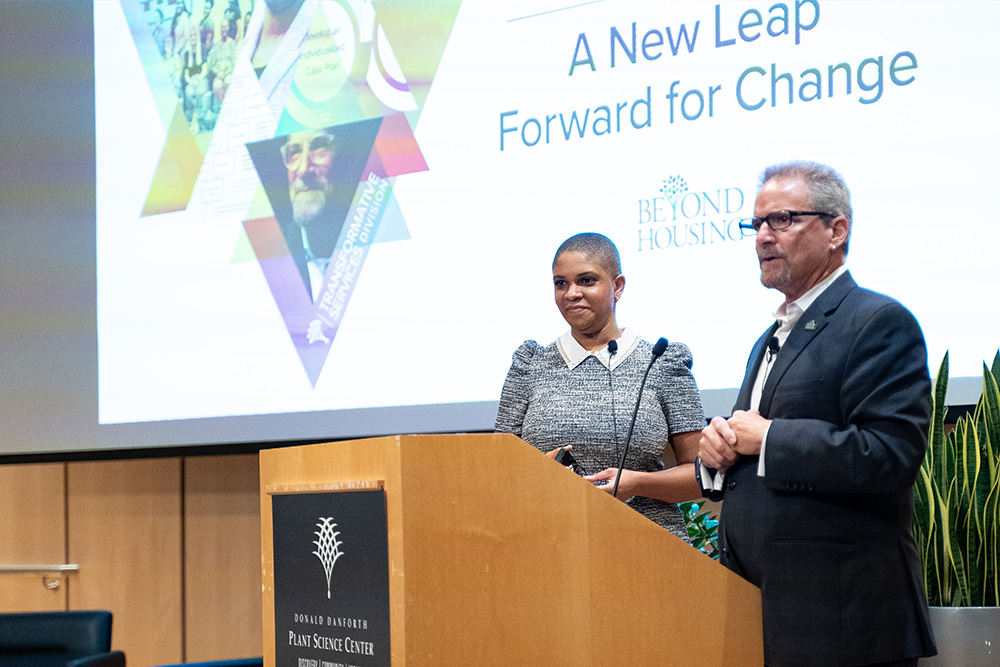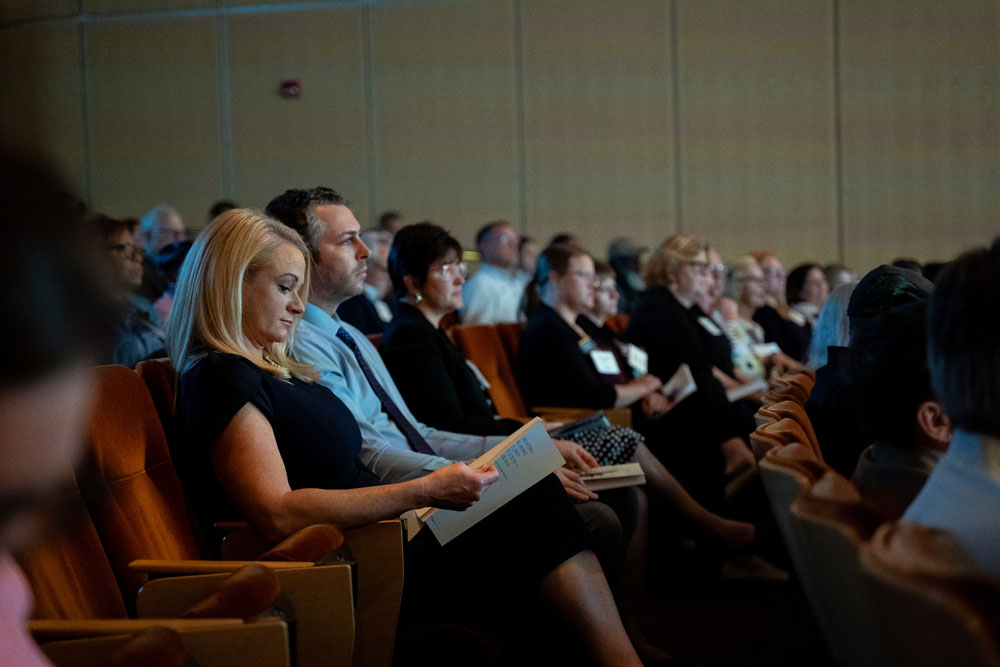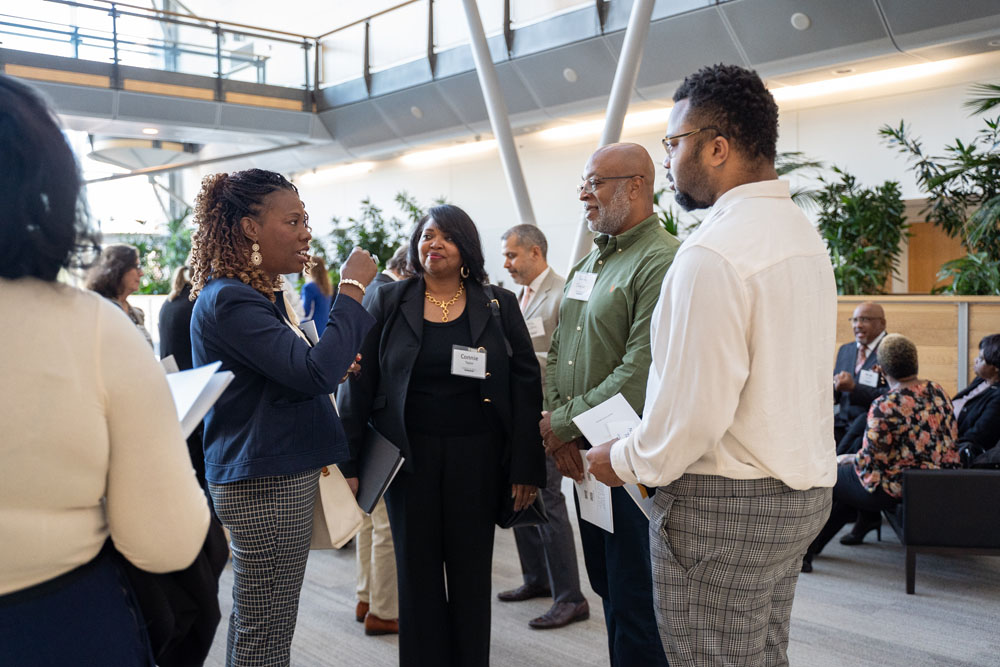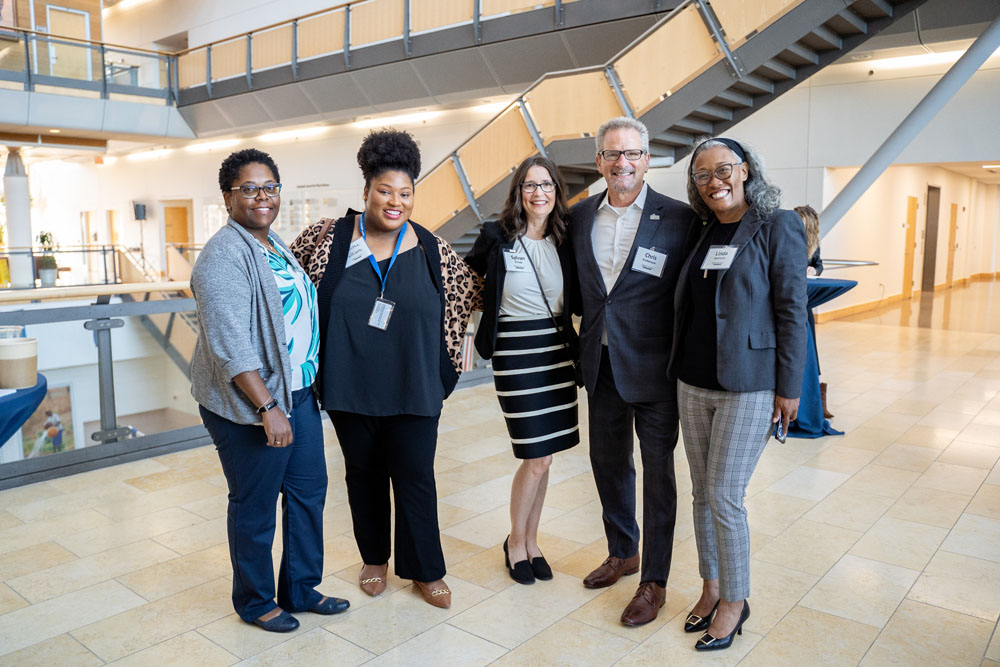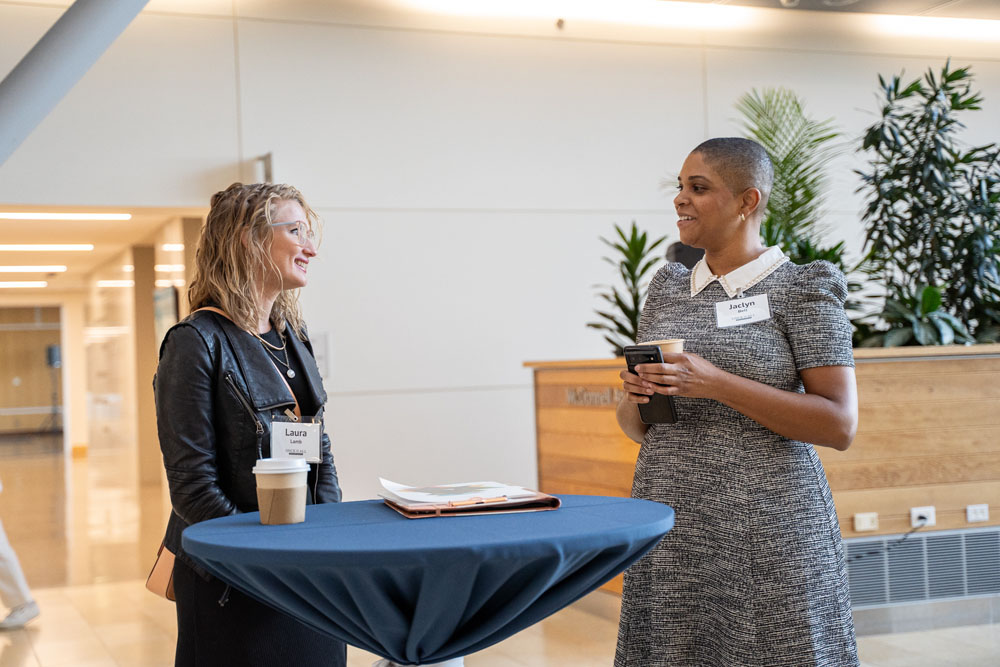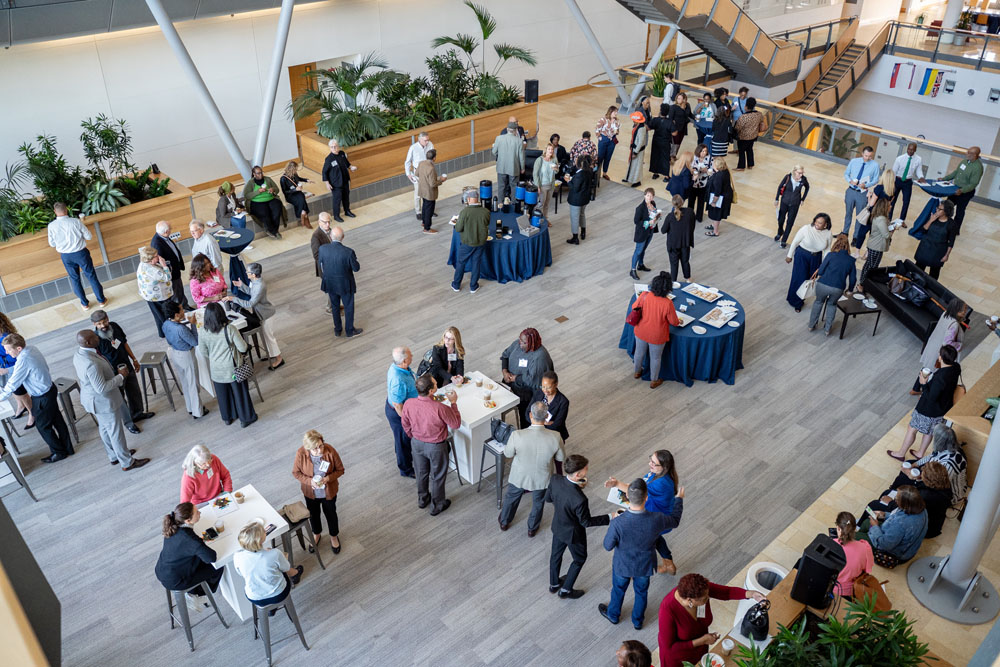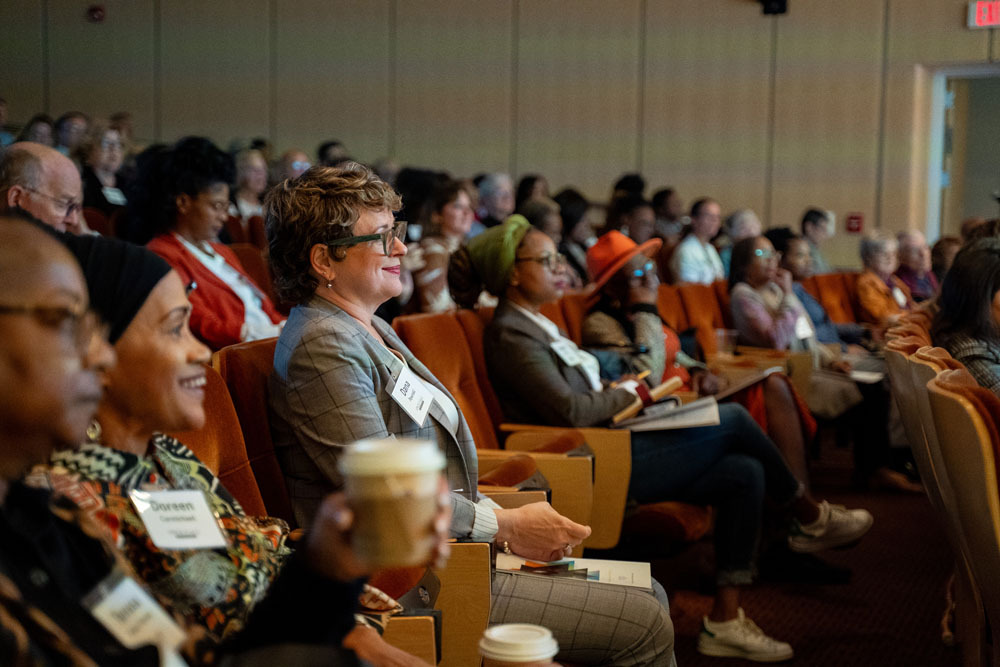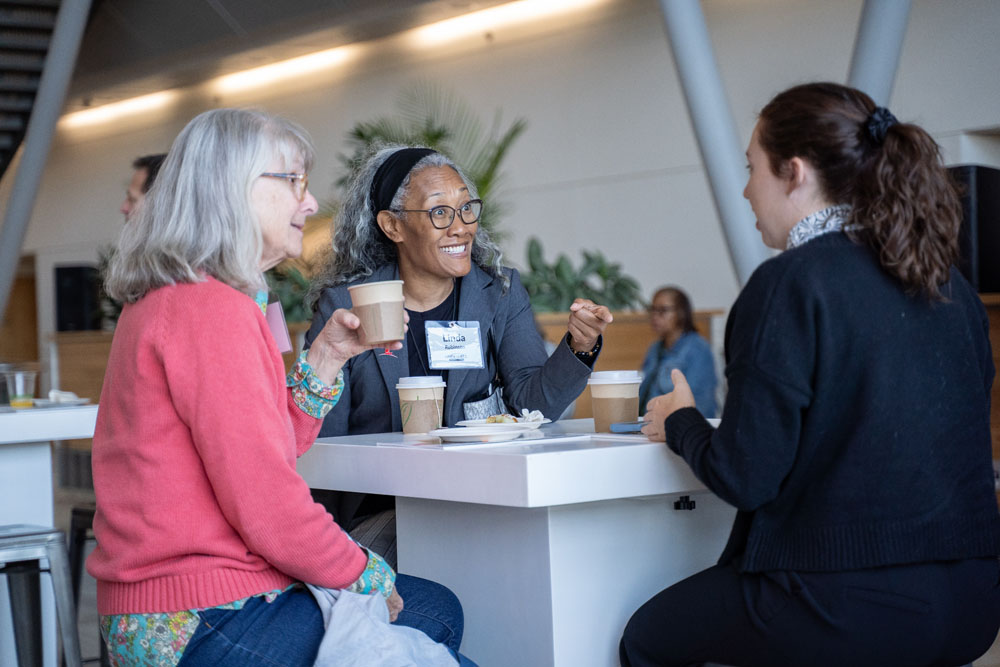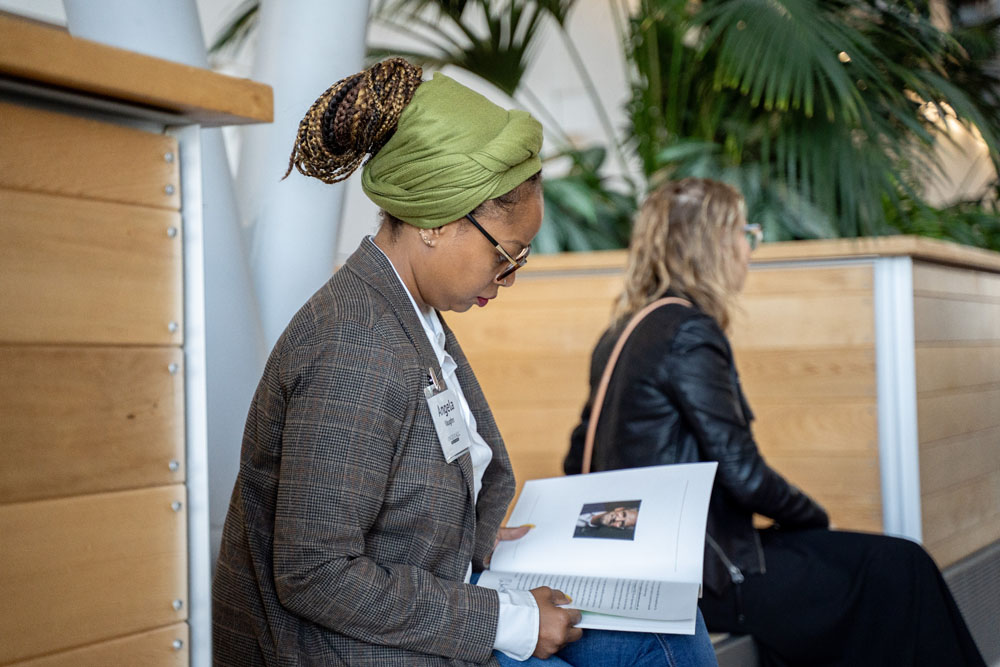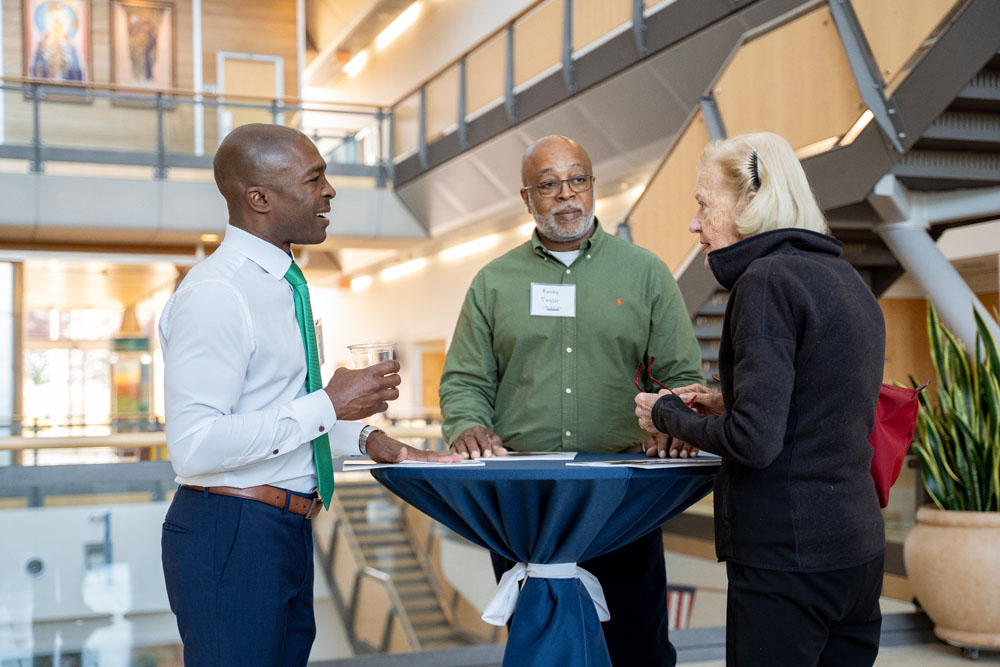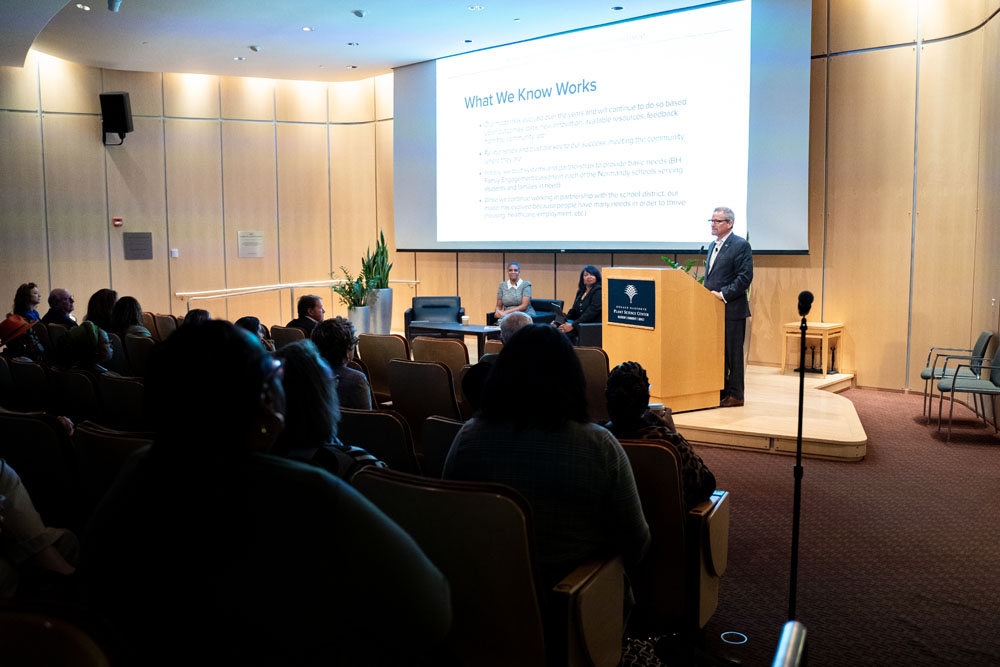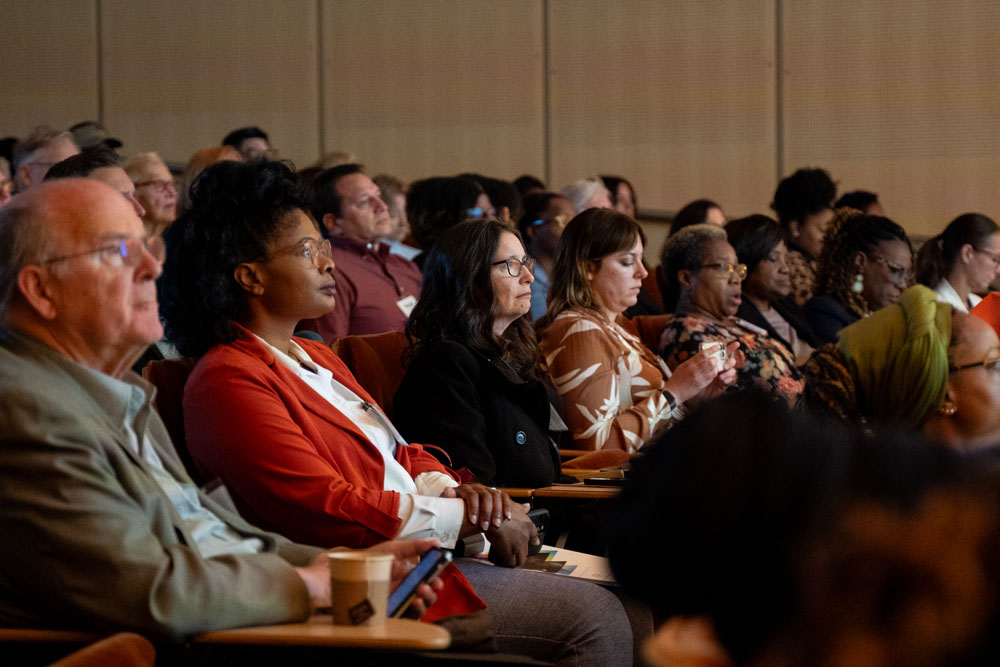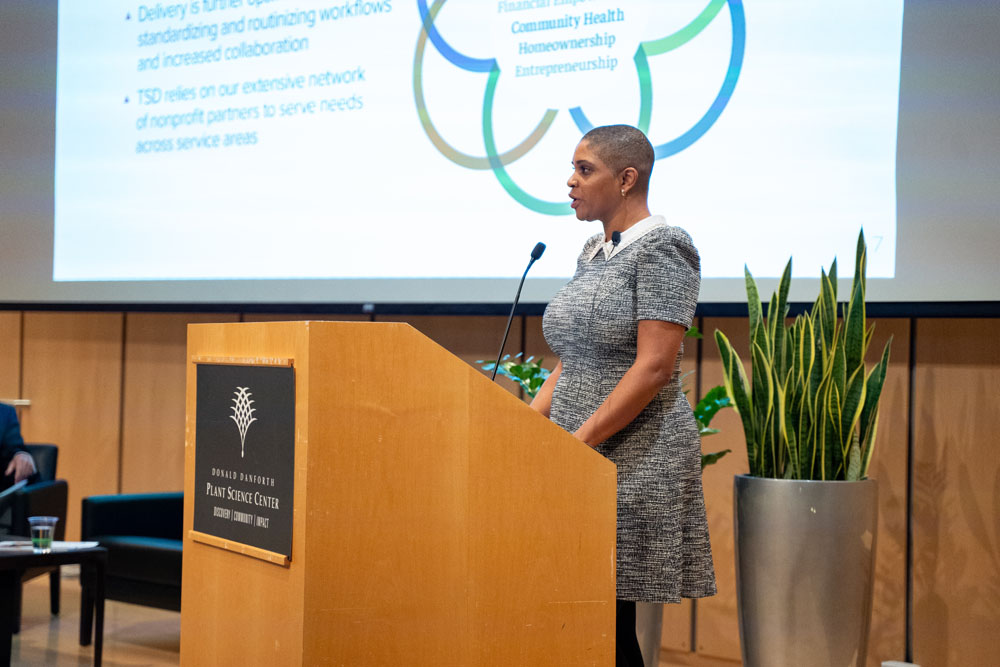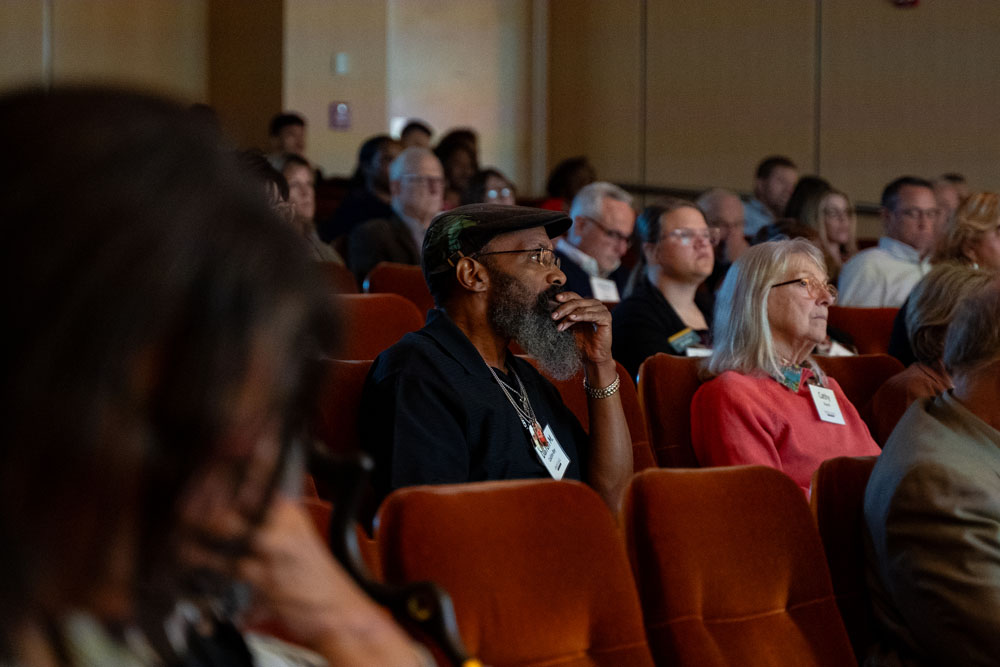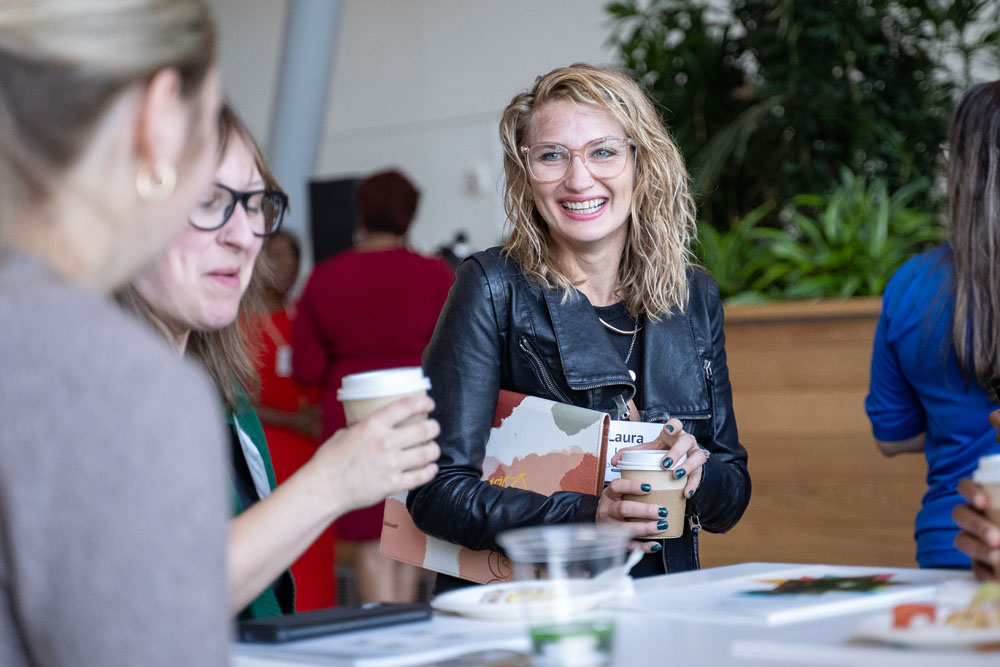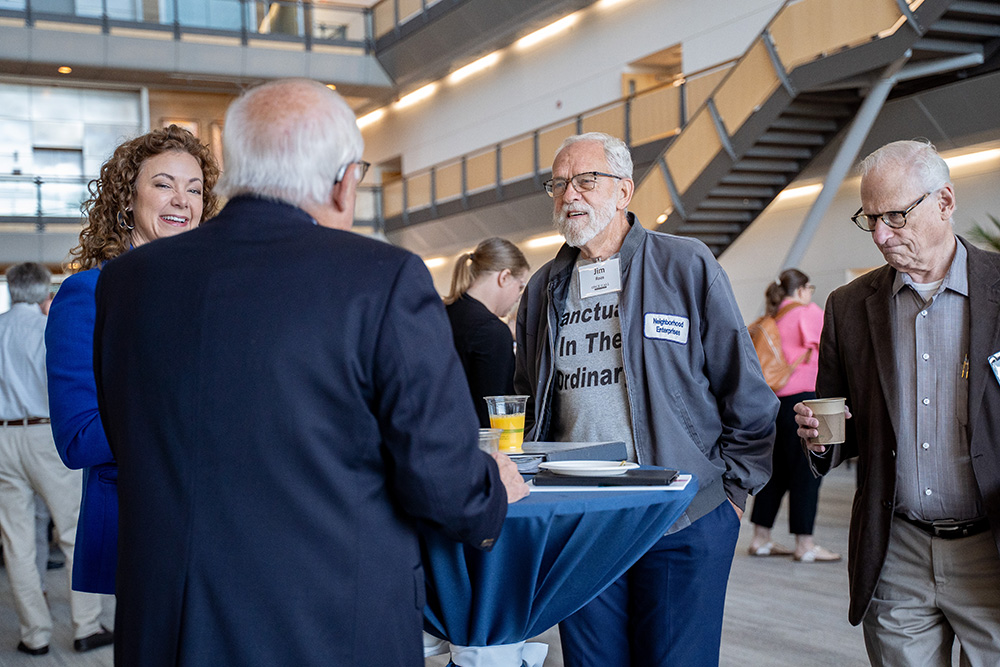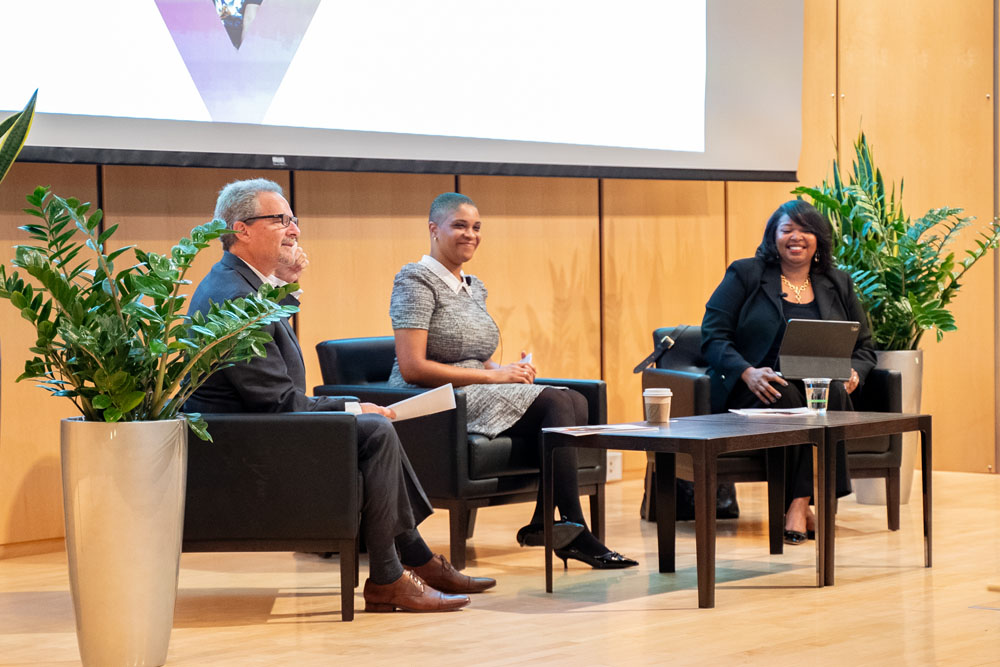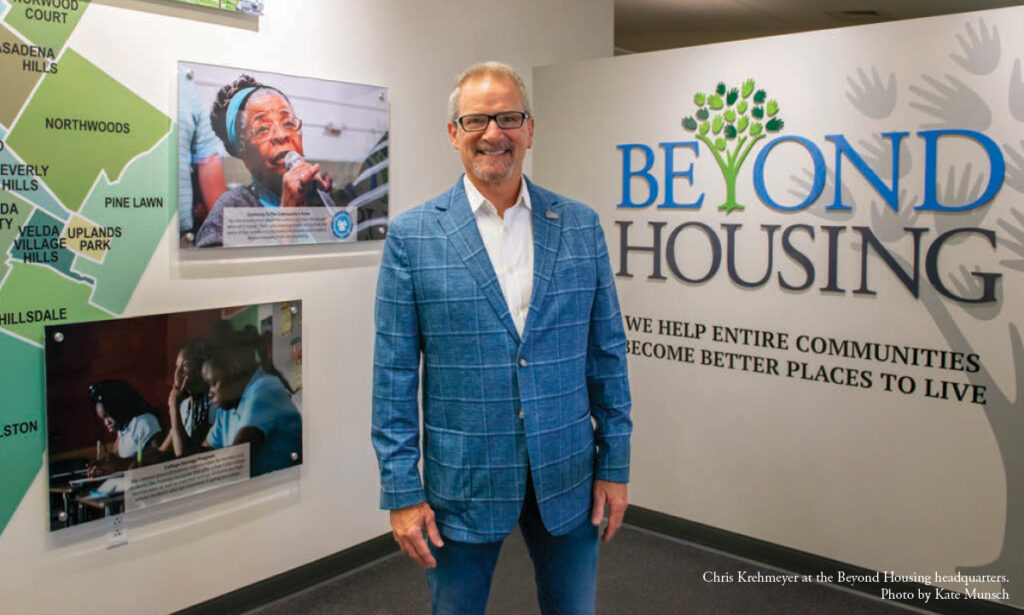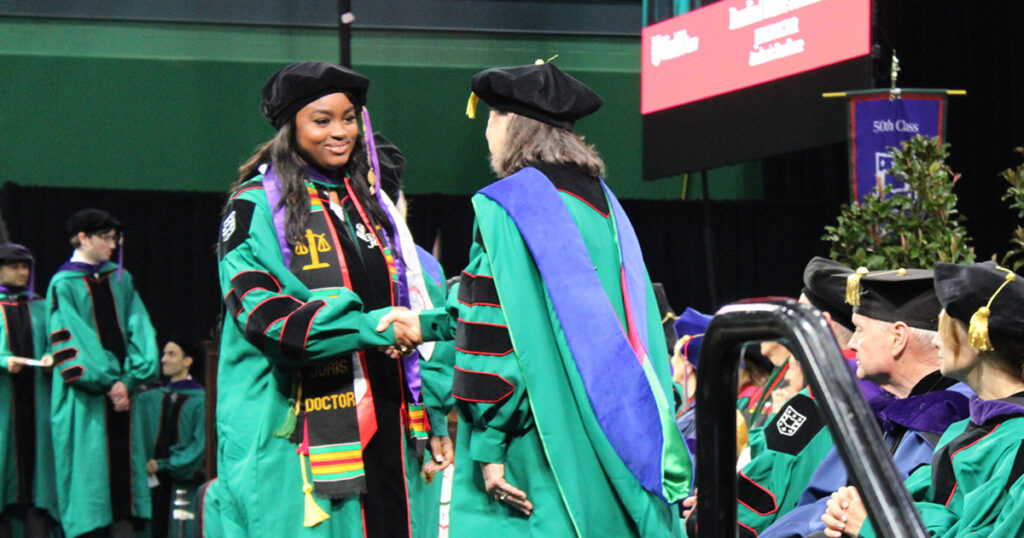On the morning of October 8 at the Donald Danforth Plant Science Center, Beyond Housing CEO Chris Krehmeyer and Chief Transformation Officer Jaclyn Belt were joined by Connie Taylor, Director of Community Engagement and Impact for Ameren for a presentation on an exciting evolution of Beyond Housing’s holistic model: the new Transformative Services Department (TSD).
The new department is designed to remove the barriers imposed by systemic poverty to help low-income St. Louisans achieve economic mobility more effectively—strengthening under-resourced communities and also the greater St. Louis region.
Addressing poverty more effectively
Beyond Housing CEO Chris Krehmeyer began the presentation by saying that, despite an overwhelming investment of time and money by nonprofits and government services, we—both here in St. Louis and across the country—are not seeing the impact we need.
Krehmeyer attributed this to a range of factors, including people and organizations not having a valid understanding of the problem, efforts conducted in silos instead of collaboration for greater impact, and resistance to innovation and new thinking.
“As an organization, we’re just not going to do the same things that we know don’t work. We’re trying to do things differently in a way that will have long-lasting change.”
—Chris Krehmeyer
In contrast to more traditional single-focused efforts, Beyond Housing’s comprehensive work and holistic model have generated proven results in the communities in the North St. Louis County that Beyond Housing serves. The work encompasses everything from supportive services to strengthen families to building new homes, rehabbing existing homes, economic development, education, municipal government, community services including forestry, and more.
The Transformative Services Department is the result of the organization’s continuous commitment to creating greater impact. “Let’s have the courage to change and be better, be innovative, creative, and take some risks,” said Krehmeyer.
A new leap forward
After Krehmeyer’s introduction, Beyond Housing Chief Transformation Officer Jaclyn Belt presented the new Transformative Services Department (TSD).
“Thriving communities are made up of thriving families.”
—Jaclyn Belt
TSD centralizes all of Beyond Housing’s supportive services under one umbrella. Removing the silos enables staff to collaborate and serve residents more holistically. Staff now work together to deliver specialized services under a centralized case management to ensure efforts are coordinated and mutually reinforcing.
Based on an initial assessment, each client receives an individualized case plan tailored to their personal situation and specific needs. The case manager then assigns specialists who serve clients along six sequential key service areas designed to move clients on a journey from stability to economic mobility:
- Housing Stability:
Supporting families to maintain safe, affordable housing - Career Development:
Helping clients secure higher-quality employment through skills training, education, and placement - Financial Empowerment:
Budgeting and building wealth-generating assets through financial education - Health:
Access to healthcare for chronic conditions - Homeownership:
Guiding clients from renting to homeownership - Entrepreneurship:
Support for starting and growing businesses for entrepreneurs
Starting with housing stability, the service areas are designed to move clients in sequential order from stability to making a living wage and building generational wealth. “Think of these service areas as rungs of opportunity on the ladder to economic mobility,” said Belt.
All workflows and processes for staff are also standardized to ensure consistent delivery of services to every client. “Our internal mantra throughout has been to centralize, standardize, and routinize,” said Belt.
“The future of St. Louis depends on us supporting families and communities.”
—Jaclyn Belt
Measuring performance through real-time data
Belt said she is particularly excited about the use of real-time data and periodic reporting to measure effectiveness for continuous learning and refinement. “Data analytics and collection are built into the fabric of the department.”
As workflow steps are completed and documented, service delivery data is available to staff through Salesforce dashboards. Key Performance Indicators (KPIs) are monitored and aggregated monthly to provide insights into effectiveness and reach. Outcomes are also tracked and reported biannually. Through this commitment to data and refinement, TSD’s effectiveness will grow stronger over time.
Part of a greater whole
What also makes the Transformative Services Department entirely unique is that it’s just one part of Beyond Housing’s holistic model.
As TSD helps strengthen low-income families, Beyond Housing’s work and holistic model address the built environment, from 36 new homes currently under construction in Pagedale, to hundreds of home rehabs, and ongoing partnerships with local government and the school district.
This also is bolstered by the organization’s extensive network of nonprofit partners, including the Community Impact Network which also operates in the 24:1 Community.
Creating a stronger St. Louis—once and for all
Connie Taylor from Ameren joined Belt and Krehmeyer in a discussion about the promising potential for TSD to strengthen both under-resourced communities and the greater region. Ameren is a major supporter of Beyond Housing’s work and also invests significantly in increasing the energy efficiency of homes in communities across the region.
“Our mission is to be a leader in building a sustainable energy future. As the electricity and gas supplier of 2.4 million customers in Missouri and Illinois, we’re part of this community. When communities thrive, we thrive.”
—Connie Taylor
Taylor said that low-income families often pay three to four times as much for energy due to inefficient appliances and homes. It’s one reason why the energy provider has invested in making homes in under-resourced communities more efficient.
When asked what she hopes for St. Louis five years from now, Taylor said, “During the pandemic, we really learned what we can do when we work with a sense of urgency. If we continue to work with that sense of urgency, then we’ll have something to celebrate.”
Krehmeyer and Belt are also excited about what the future holds. “Things can change if enough of us want them to,” said Krehmeyer, adding that our region’s challenges are solvable.
Belt said she hopes to see more low-income families achieving a sustainable income, more families becoming homeowners, more businesses, and to see this success multiply. “That’s the dream.”
